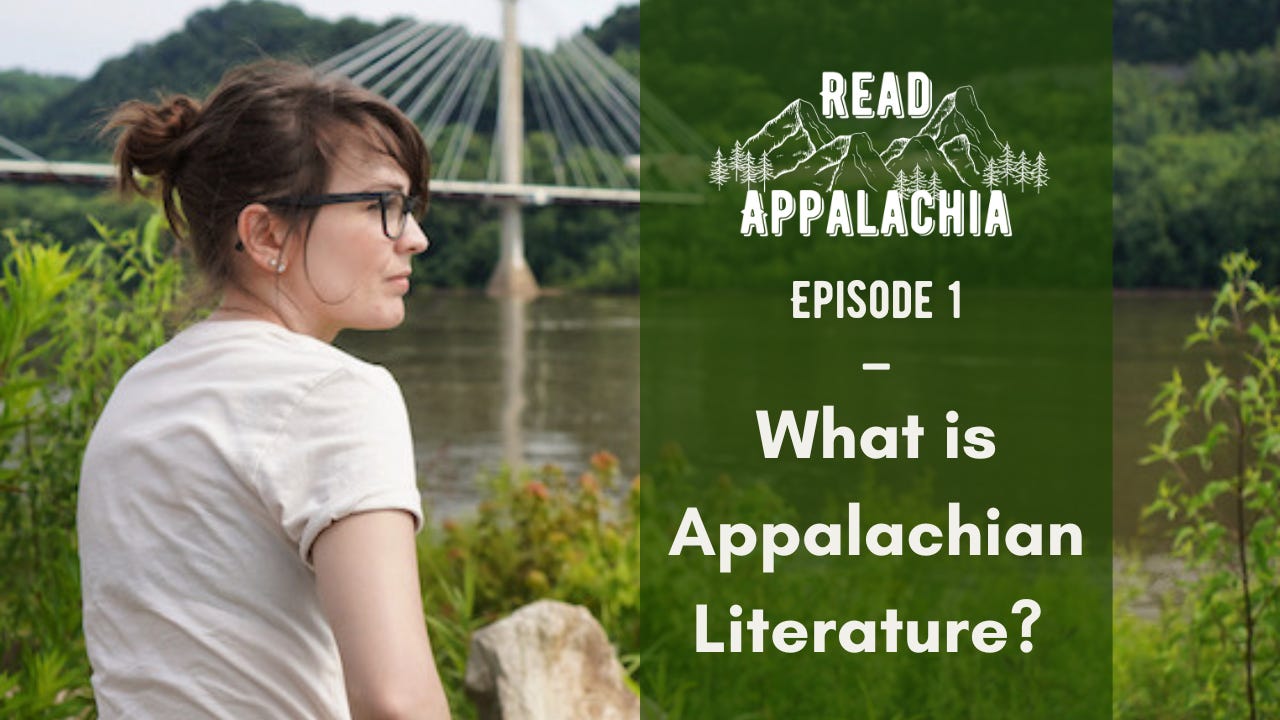
One of the biggest solo projects I’ve ever had, Read Appalachia holds a special place in my heart. I love the people from my region and our literature. For each episode of Read Appalachia, I sketch out my ideas for the introduction for each episode. I’ll be including these snippets here for folks to enjoy. These posts will be bonus posts in addition to Winchester Ave’s regular content.
“There is space for all of us to reclaim Appalachia as it is for us.” - Anthony Harkins and Meredith McCarroll, Appalachian Reckoning
Episode 1 - Introduction
(Originally Published February 2nd, 2023)
Hello there, friends! I’m your host, Kendra Winchester, and this is Read Appalachia, a podcast celebrating Appalachian Literature. And this is Episode 1! I can’t believe that today is the day! This time has been so long in coming. It’s hard to believe it’s finally here.
Like every episode, we start in my library, a snug little room filled with black bookshelves. What wall space isn’t covered with books is draped in book-related art. It’s truly my safe haven this winter. Here in Spartanburg County, South Carolina, we are in the midst of the chilly rainy season that we call winter. The Corgis are constantly tracking mug in, and they always protest that they, once again, have to have their bellies dried off. I suppose that’s their curse of being lowriders. But I suppose it’s also the job security for my washing machine.
Anyway, have a seat, grab a cuppa, and stay awhile. We have so much to talk about!
As a kid in Appalachian Ohio, I read a lot of books both for fun and for school, but I rarely if ever saw myself or the people from my community in the books that I read. It wasn’t until I was in my last year of my English program in grad school that I finally began seeing stories that feature Appalachian people, and that was only because I began to look for them outside of the classroom. In my search, I found stories featuring characters from places like western North Carolina, Eastern Kentucky and even Appalachian Ohio. The dialects I saw on the page reflected the ones I knew so well, and the stories possessed a deep sense of place and a love and understanding that comes from truly understanding the cultures and communities in these mountains.
Before reading these stories, I never truly understood that there were stories that were mirrors that could reflect back to me the world that I came from, giving me a chance to see myself in their pages. There were also plenty of books that acted like windows, giving me a chance to see Appalachian communities and cultures that I wouldn’t have been introduced to otherwise. When reading these stories, I began to better understand that there are so many different ways to be Appaalchian. Whether mirror or windows, Appalachian Literature plays a powerful role in our culture.
I firmly believe that our literature is just as rich and complex as any other kind of literature. Our literature should be treasured for the beautiful art that it is and even celebrated. Read Appalachia exists to do just that, to celebrate Appalachian Literature and Writing in all of its complexity, contradictions, messiness, joys, sorrows, and emotional depth. We’re here to talk about it all.
Last week in a special preview episode, I talked to Amanda Page, another creative from Appalachian Ohio, and had a great chat about our hometown of Portsmouth, a small town in Scioto County. Like a lot of places, Portsmouth has seen better days, but Amanda and I share in the hope that there are good things in store for the place our hearts call home.
When we talk about the idea of capital “L” Literature, a lot of people shy away from it. I think many people probably had my experience where I was taught that there were “Literary” books and other books you would “read for fun.” But only the literary books “counted” as literature.
This idea really hit home for me when talking about Read Appalachia with a friend. They asked with genuine curiosity, what counts Literature? I gave them a less formal answer at the time, but I then began to wonder, what IS literature? I checked my college textbook with all sorts of literary definitions, and it discussed how the definition has been hotly debated throughout history. So the academics who “get to decide” can’t even agree? Is there any hope for the rest of us?
Of course there is! I have complete faith that together, we can figure this out. When I began thinking of who could best answer this question, my mind immediately went to, “Who has to answer this question in a very straightforward practical way?” The answer? English Lit teachers, of course! So I decided to ask a couple of English Lit teachers to come on the show and share their perspective on the questions, “What is literature? And what’s more, “Based on that, what is Appalachian Literature?”
In the second half of our show, we’ll be talking to Melissa Helton, a teacher at the Hindman Settlement school, located in Eastern Kentucky. Melissa shares her thoughts on the topic and how that influences her work working in educational programming. But first, I asked one of my favorite authors, who also happens to be a former high school English lit teacher, to share her perspective on what counts as literature, anyway?! And that is of course, Annette Saunooke Clapsaddle.



